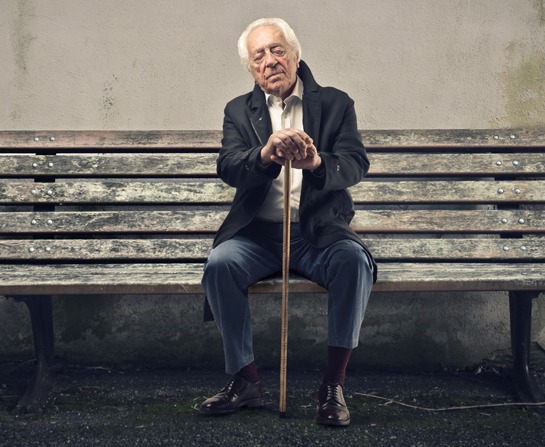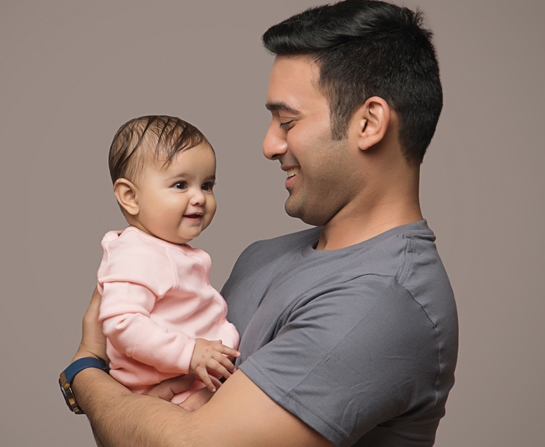An Age-Old Conundrum
April 27, 2022 Return

WORDS LIM TECK CHOON
Professor Dr Tan Maw Pindo Consultant Geriatrician University of Malaya Medical Centre |
“I was Cleopatra, I was taller than the rafters But that’s all in the past now, gone with the wind. Now a nurse in white shoes leads me back to my guestroom It’s a bed and a bathroom and a place for the end.”~ From Cleopatra by The Lumineers
Filial piety and respect for older persons are cultural touchstones of Asian culture. Despite this, the rate of abuse inflicted on older persons is high enough to spur Deputy Women, Family and Community Development Minister Hannah Yeoh late February into calling for a roundtable discussion to address this issue. She also pointed out that, in Malaysia, many abuse cases tend to go unreported.
While stricter laws may be one way to curb abuse on older persons, consultant geriatrician Professor Dr Tan Maw Pin believes that the root causes of the problem need to be addressed as well. One of these root causes is our own often contradictory views on older persons.
FREEFALLING SKYWARD, OLDER & WISER
Age is a multi-dimensional concept. We often think of chronological age – which measures the number of years we have lived – when we use the word, but the concept of age also encompasses physiological, cognitive, social and psychological ages – all of which may not necessarily coincide with our chronological age. One may be chronologically old, but his or her physiological, cognitive and psychological ages may be younger, allowing the person to still stay sharp and active.
For example, Professor Ephraim Engleman was an active professor affiliated with the University of California, San Francisco, up to his passing at the age of 104 in 2015. Who can forget Mother Mary Teresa Bojaxhiu, who was still overseeing the Missionaries of Charity in Calcutta, India, until her death in 1997 at the age of 87. Of course, Malaysia’s Prime Minister Tun Dr Mahathir Mohamad is also demonstrating that, these days, we cannot assume that one is of limited capacity to function just because he or she is of a certain age.
AGEING IS A LIFELONG, PASSIONATE PROCESS
In the past, people tend to attach descriptions such as ‘weak’, ‘frail’ and ‘senile’ to older persons. Research has shown that this perception is inaccurate: growing old is not an inevitable descent into decrepitude.
In fact, Prof Dr Tan points out that advances made in research and development have enabled more older persons to still lead active and fulfilling lives.
For example, there are more opportunities than before for older persons to continue learning and being self- sufficient, which in turn help to keep their mind sharp and reduces the risk of dementia and diseases that affect the nerves and brain (such as Alzheimer’s disease). There are also studies which show that sexual activity among older persons is beneficial, as it promotes an increased sense of contentment as well as a feeling of kinship with their loved ones a complete 180º turn from the prevalent belief in this part of the world that elder persons are not supposed to be experiencing sexual desire, much less having sexual relationships.
Also, history has shown that a considerable amount of the best works from creative artists as well as scientists often result during their later years. This is said to be because the brain ages like fine wine. Life experiences shape the way one looks at our world, and life-long passions may simmer and evolve to produce a period of creative bloom later in life. The famous Colonel Harland David Sanders, the face of Kentucky Fried Chicken, for instance, opened his first outlet in Utah in 1952, when he was in his 60s, and the rest was history.
Prof Dr Tan therefore reiterates that this belief that older persons must be coddled because they are physically and mentally infirm should no longer be prevalent. Older persons have the capacity to be self-sufficient, productive and passionate just like everyone else.
THE DOWNWARD SPIRAL IN CAREGIVING
You may be wondering by now: does the attitude shift really matter in the long run? Won’t it be better if we focus our time and energy on improving healthcare for the elderly?
Well, it matters because abuse of older persons is present in this part of the world despite many Asian cultures emphasizing filial piety and reverence for older persons. According to a study, the prevalence of such abuse in each country in Asia ranges from 2.2% to as high as 66%.
Such abuse doesn’t just include physical violence. Other forms of abuse include psychological abuse (the most common form of abuse, in fact), financial abuse (which includes withholding the older persons’ money, defrauding and theft), sexual abuse and neglect.
Abuse usually occurs due to one of three reasons:
- Opportunity. The abuser does it because he or she is in a position to do so.
- Occasion. The perpetrator isn’t targeting the older person specifically – he or she will do it to anyone, and the older person just happens to be in the perpetrator’s path.
- Desperation. Abuse occurs because the harried perpetrator has reached a point in which he or she loses all sense of restraint and commits acts that would normally be considered reprehensible.
It may seem natural to call for harsher laws to punish those responsible for such abuse, but Prof Dr Tan believes that doing so will not address issues of abuse that fall into the third group, desperation. One group that is increasingly feeling this desperation is the sandwich generation.
THE SANDWICH GENERATION
The term ‘sandwich generation’ is used to describe the generation of people, usually in their 30s and 40s, who juggle between their parents and their own children. In an ageing country such as Malaysia, this term describes a significant slice of the population.
The challenges of being in the sandwich generation especially affect women, as they are traditionally viewed as the primary supporter in the family. Men aren’t fully exempted either, as their role is typically seen as the primary breadwinner. As a result, a typical couple in a sandwich generation faces the challenge of having to be financially, emotionally and physically available for both parents and children.
WHEN REVERENCE AND PIETY BECOME DOUBLE- EDGED SWORDS
Further compounding the pressure is the typical Asian mentality which considers supporting the parents a moral obligation. The inability to do this well is often viewed as a sign of personal failure as well as a mark of shame and guilt. Those who fail to provide adequate care for older members of the family may even face censure from society, causing them to cover up their problems and preventing them from seeking help.
The result is akin to a dam with spreading cracks on the wall once they reach a breaking point, desperation may cause them to abandon their parents while stress and various negative emotions may lead to other forms of abuse.
COMMON CHALLENGES FACED BY A SANDWICH GENERATION CAREGIVER
According to a survey conducted by LV= Insurance in the UK:
54%: want to save money for their old age but can’t afford to do so.
52%: are worried that a serious illness will affect them or their partner in the following year.
30%: are worried that they or their partner dying will leave the family without an income.
46%: cite that their children are a constant source of unexpected expenses every month.
Many experience emotional turmoil
- Overworked and burned out
- Lack of sleep
- Guilt
- Anxiety
- Loss of interest in previously enjoyed activities
- Depression
Many have health issues
- Neglect of own health and wellbeing
- More sick days
- Higher rate of overweight and obesity
- Higher risk of mental decline
CHANGING THE PRESENT, RESHAPING THE FUTURE
Professor Dr Tan Maw Pin believes that an attitude shift towards older persons is key to untangling the Gordian knot of issues facing the sandwich generation and the older persons they care for.
Don’t underestimate older persons! So long as they are capable of doing so, there is no reason why older persons shouldn’t drive, manage their own money or make decisions for themselves. Such independence also helps to keep their mind sharp and focused.
OLDER PERSONS CAN BE SELF-SUFFICIENT AND INDEPENDENT FOR AS LONG AS THEY ARE ABLE TO
An unintentional fallout of treating older persons as venerable individuals who are also weak, infirm and sickly is that younger people stop seeing them as human beings capable of making their own decisions and having emotions. When things get tough, they may even start to view these older persons as unwanted anchors around their knees that will drag them down further.
“I have seen many instances in my clinic, during which the children of the older persons insist that I talk to them instead of addressing the older person,” Prof Dr Tan recalls. Given that the older person is the one with a health issue, to her it makes perfect sense to ask the person how he or she
is feeling. Yet, quite often the older person’s children believe that the person is incapable of explaining things on his or her own, and insists that Prof Dr Tan talk to them instead.
This “Older persons should be seen but not heard!” attitude tends to persist in all areas of family life. For example, many older persons lose financial independence despite being still capable of managing their own money, as overzealous younger members of the family insist on making financial decisions for them. Many older persons also buy into the belief that they are incapable of managing their own money just because they are of certain age, and willingly hand over the responsibility away. Such arrangement is also ripe for financial abuse.
The more an older person is deprived of his or her independence, the more dependent the person is on often busy and stressed-out younger family members. This creates a sense of helplessness when the older person begins to perceive himself or herself as a burden to the family.
“What is needed is an outlook change on both older persons and their younger family members,” Prof Dr Tan
A HOME FULL OF LOVE, NOT JUST OBLIGATIONS
Prof Dr Tan suggests the following as a starting point for a family to juggle with providing love, care and attention to younger and older loved ones.
Older persons, let’s be independent for as long as possible. These days, with family units being smaller and increasingly fractured as younger people move to major cities or abroad to study and work, we can’t take for granted that every family will be able to fully provide for older loved ones.
That doesn’t mean that the older loved ones should be neglected or abandoned, of course! Instead, older family members can take measures to stay as independent and self-sufficient as possible. This way, they are able to live a fulfilling life on their own terms, without being dependent on other family members. These measures include:
- Live well and healthy. This includes eating right, being physically active on a regular basis (incorporating age-appropriate exercises and other activities), and if any non-communicable diseases are present, working closely with the healthcare team to keep these diseases well controlled.
- It’s fine to work. This allows older persons to continue being financially independent. There is no shame in taking up age-appropriate jobs so long as the mind and body are still willing and able. These days, one has more opportunities to work from home or on a flexible schedule, so possible job options can include writing on a freelance basis, bookkeeping, being a Grab driver, sales and more.
- Learn something new. Life doesn’t end after retirement; there is a world outside to discover and experience. Learning new skills allows an older person to lead a fulfilling life, without having to take time and attention from younger family members who have children to tend to. New skills don’t have to be elaborate; they can be something on a smaller scale as learning a new language, mastering how to play a new instrument, getting the hang of blogging, starting a social media account and making YouTube videos.
Make plans for the inevitable. This includes planning for one’s funeral arrangements, having a will done up as well as discovering options and making plans for palliative care. Doing this allows the older person to experience the satisfaction of planning the days ahead on his or her own terms, while eliminating the need to involve younger family members in what could be a time-consuming process.
MAKING CAREGIVING WORK
Prof Tan has a few suggestions.
- Be open. Ask the older persons what they want, instead of assuming or making decisions for them.
- Plan the family finances. A financial planner may be a helpful ally when it comes to assessing current financial situation, and whether some areas of spending can be reduced to free up spending for caregiving
- There’s no need to do everything alone. No one is an island – trying to do everything will only lead to both physical and mental burnout. Delegate responsibilities instead. For example, can the family afford getting cleaners to come in a few days each week to do the housework, leaving the family members free to tend to other needs? Instead of a single family member having to drive the older persons back and forth to various hospitals because only that person has a car, can other family members take turns to order a Grab car and accompany the older persons?
- It’s okay to let go. Some caregivers feel that they are the only ones who can understand and care for their loved ones. Hence, they want to do everything on their own, to the point that they soon burn themselves out by overextending beyond their physical and emotional limits.These caregivers need to let go and allow others to step in to assist; if they find it hard to do this, they can seek advice from a counsellor or a member of the older person’s healthcare team.
- Don’t feel alone – no one is. Caregiving can be an isolating responsibility; caregivers may feel that they are sacrificing their own needs and relationships with other people to tend to the loved one. Nothing builds resentment more than playing the unwilling martyr. Prof Tan advises caregivers to reaching out to other caregivers, either online or in real life, for support. Furthermore, in this age of social media, they can still form and maintain strong relationships even when they lack the time and opportunity to mingle in real life.
- Most importantly, don’t forget to tend to one’s own needs too. If caregiving is delegated across several people or is planned well to allow the caregiver(s) to have their much needed me-time, the people involved in caregiving will be able to tend to their own personal needs as well. This allows them to stay healthy and sound in both body and mind.
Open and honest communication is key. This is an often overlooked but very important aspect of family life. Often, older persons either stay quiet in fear of offending younger family members, or they assume that they are the smartest (and loudest!) person in the room. Meanwhile, younger family members treat older persons as incapable of adult thought, often making decisions for them without consulting them. All this can generate friction and resentment on both sides.
Communication should instead be open, honest and respectful. Decades of resentment and unspoken hurt – which could bleed into daily interactions to create tension and dissent – can start to heal once everyone opens up and takes the time to understand one another. Prof Tan suggests that, should a family find it hard to initiate open conversations on their own, try asking a third party such as a family friend to mediate during the initial stages of communication.
Open and honest communication allows both sides to see one another in a truthful light. Both parties will understand the wishes and limitations of one another, and this will facilitate a more harmonious household. Less unrealistic pressures, less resentment, less of a sense of forced obligation; instead, the family may just be inviting in a stronger sense of togetherness and love. Finally, a home. HT
If you like this article, do subscribe here.






